Picturing Corruption
In partnership with local education officials, Transparency International Pakistan asked children across the nation to depict corruption in a drawing competition to show a “Child’s View of Corruption.”
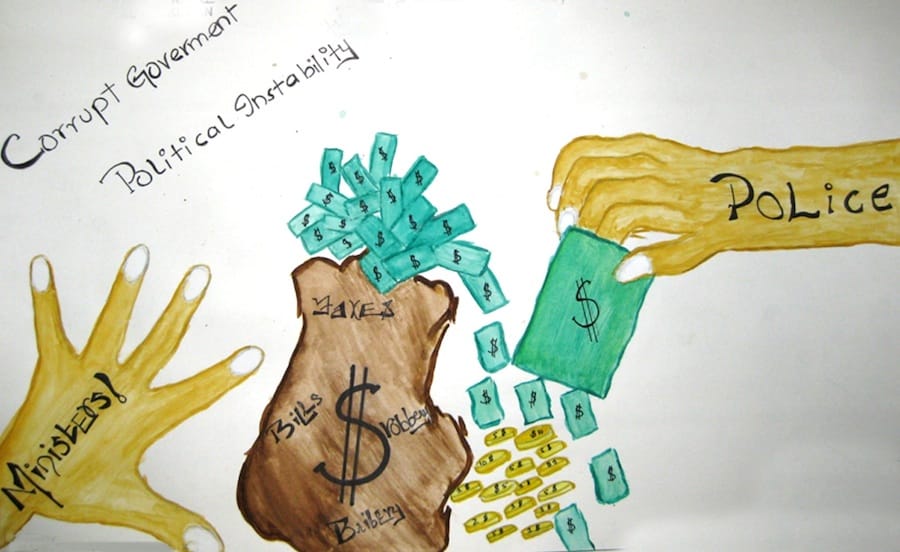
Interview by Mike Deri Smith
Even Pakistani children recognize corruption’s many guises. In partnership with local education officials, Transparency International Pakistan asked children across the nation to depict corruption in a drawing competition to show a “Child’s View of Corruption.” The children painted pictures of a country aflame and in grave danger—a nation deprived of opportunity, education, and safety. The extent of the problem becomes striking in how vividly the children are able to present corruption and see its direct links to terrorism, tainted chilli powder, and political instability.
We spoke to Saad Rashid, executive director of the Pakistan chapter of Transparency International, which has been working in the country for the past five years. Read the interview ↓
All images courtesy Transparency International, all rights reserved.
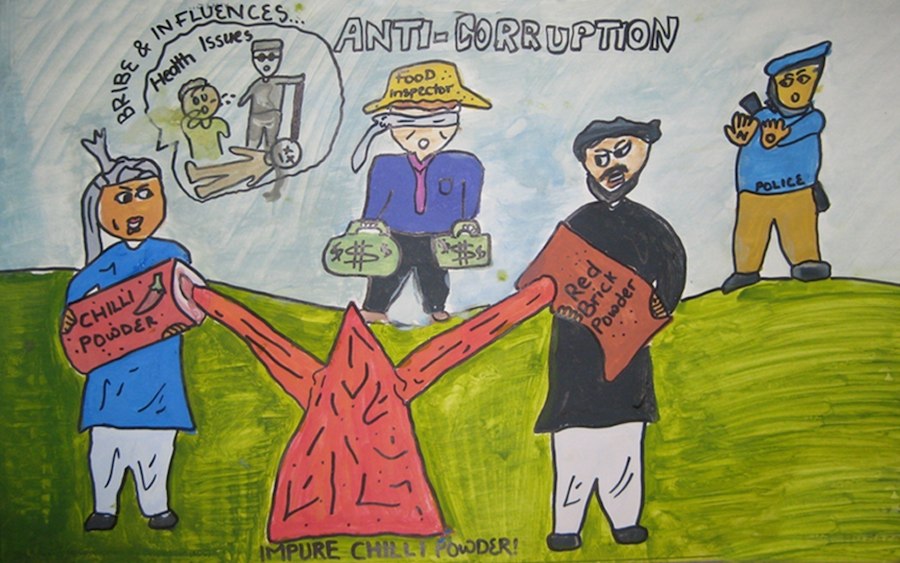
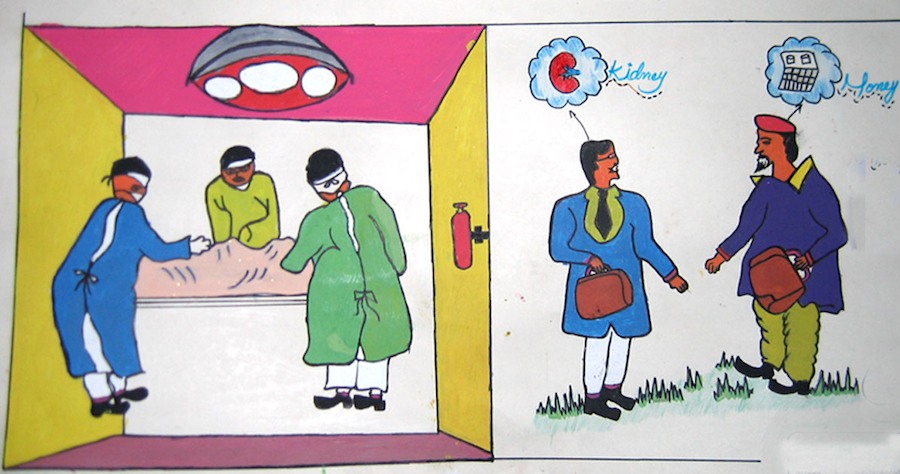
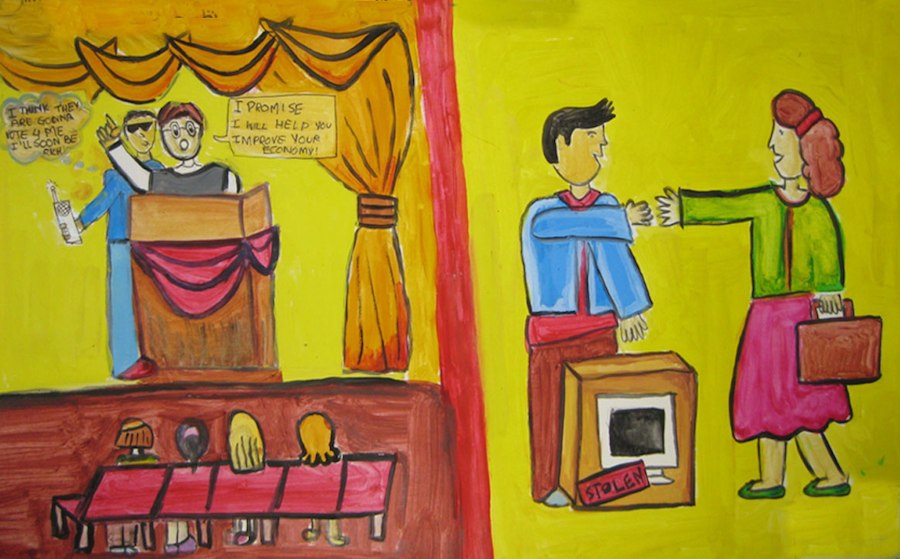
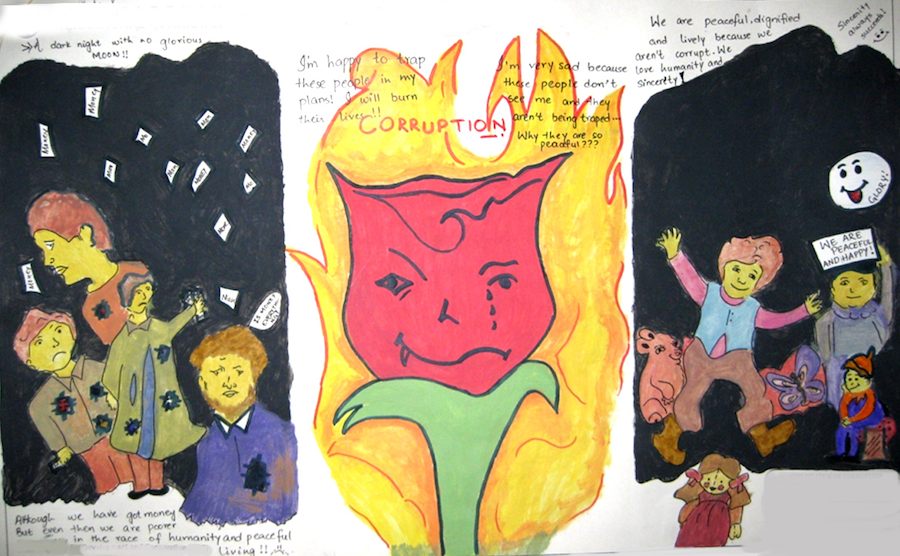
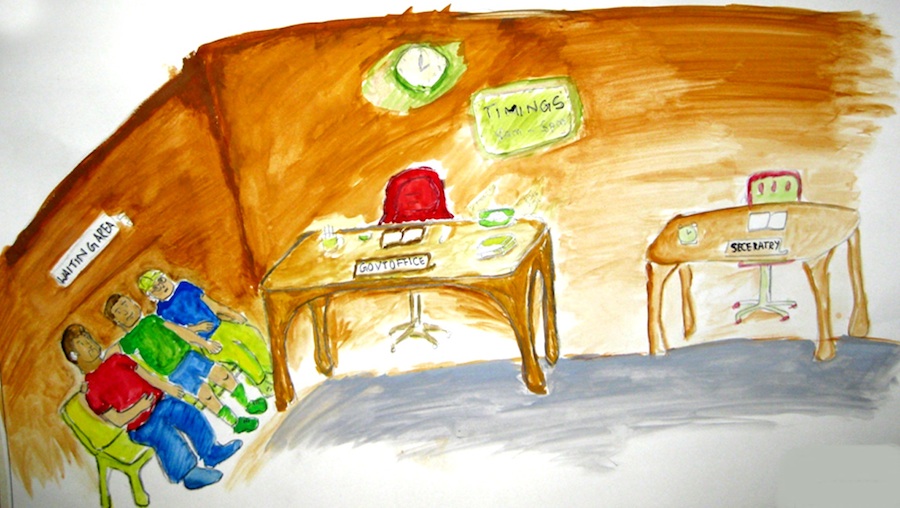

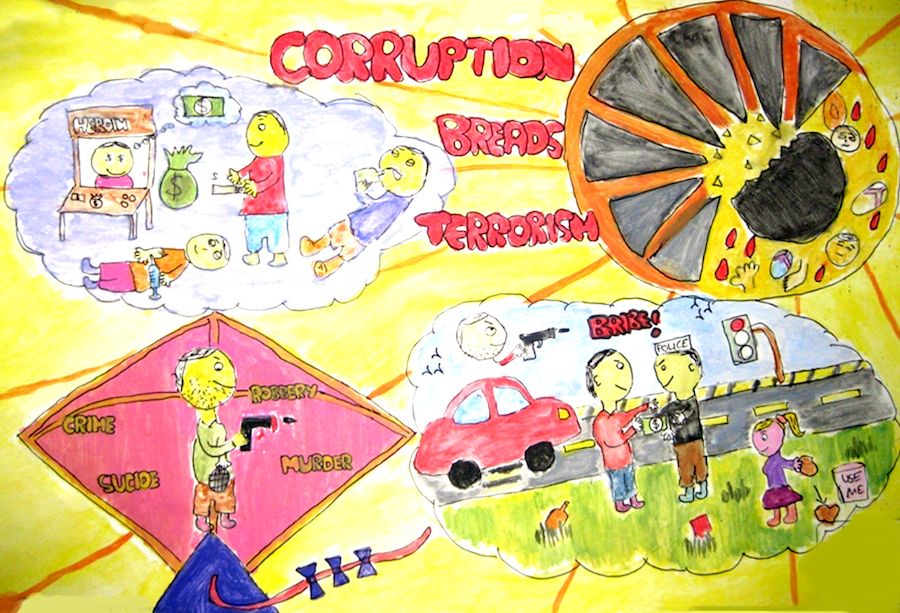
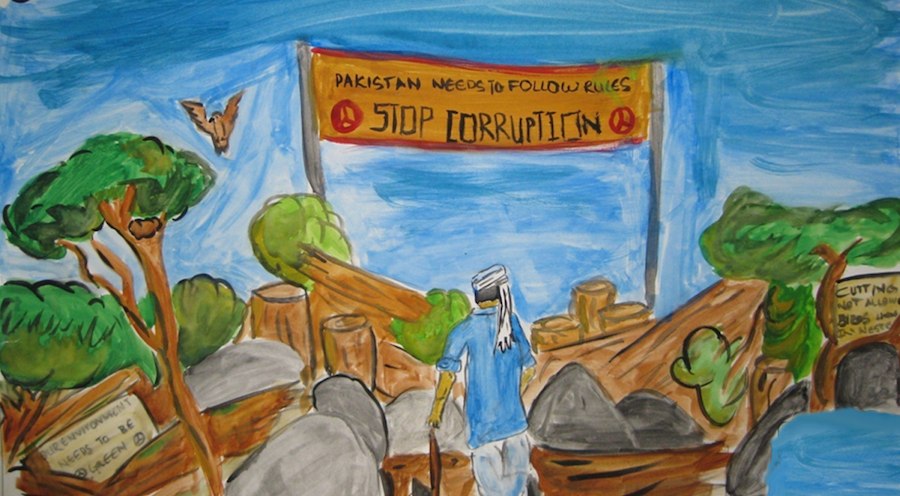
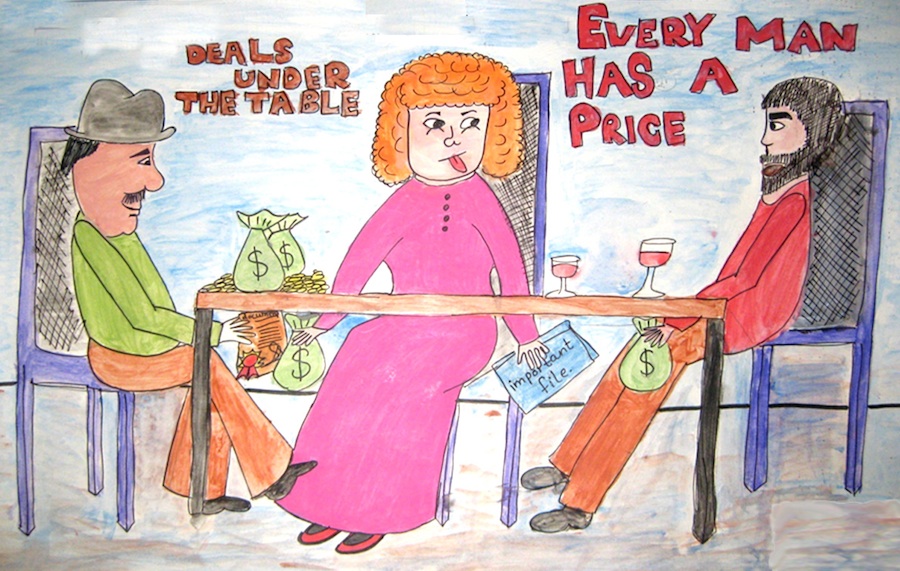
Artist interview
How are children in Pakistan affected by corruption?
A Pakistani child comes into contact with corruption from the time of school admissions. As the number of students far outnumber the seats available, the school administration demand bribes from parents for admitting their children. In public schools, textbooks are provided by the government free of cost to the students. In some schools, the children do not get the books and have to buy them from the market. Unscrupulous elements from the school administration sell these books to the shopkeepers. Hence, the children see corruption at an early age.
Where in your daily life do you encounter corruption in Pakistan?
Corruption in developing countries is rife in all aspects of daily life. Be it the police, land administration, judiciary, health, education, etc. For basic rights, officials demand bribes for getting the work done speedily, or otherwise it is delayed unreasonably.
What steps is Pakistan’s government already taking to fight corruption? What’s holding them back?
Unfortunately, there seems to be a lack of political will to take unpalatable steps to curb corruption. The legislation is there and new legislation is also made. The government talks about taking steps to control corruption, but this is only rhetoric. The implementation of the laws is not there. The corrupt feel they are not accountable and hence keep on with corrupt practices. However, in the past year or so, the media and civil society have been exposing corruption, and the judiciary has taken up some cases and passed judgment against the corrupt. This is the silver lining.
What did you hope this project would achieve?
It was felt that schoolchildren needed to be specifically targeted to raise awareness among the masses about corruption. Transparency International Pakistan took this initiative since corruption hits the education sector—when the issue of corruption is tackled, the overall education sector benefits.
Is corruption a problem so ingrained in some societies that focusing on children’s education is the best way to change things?
When we talk about dealing with corruption, one of the ways to address this problem is through the education sector. Transparency International Pakistan undertakes different programs at schools, colleges, and universities to tackle the menace of corruption. A reason to go for schools is basically that a child’s mind and personality is so flexible that it can be molded. At this age, the mind is more adaptive, so it becomes much easier to teach; whatever is taught remains in the mind forever. From our perspective, it is the best way to counter corruption. In this era, children have become a kind of pressure force for parents. So if it is put in their minds that corruption is a menace, they will not only refrain themselves from it, but also stop their elders from pursuing such negative acts.
Do you think developing countries are more corrupt than developed countries?
All countries face corruption. Some more, some less. Transparency International Berlin publishes a “Corruption Perception Index” each year. From the ranking, it can be deduced that corruption is more [prevalent] in countries where there is more poverty. Alternately, one can say that corruption increases poverty.
Apathy and tolerance of corruption seems to allow corruption to flourish. What gives you hope that things will improve?
As the government does not take any action against the corrupt, people come to the conclusion that, without bribery, no work can be done. However, in the past year, Transparency International Pakistan has started to provide legal assistance to victims of corruption. It has been found that citizens are willing to fight corruption if they see that there is a way to do so.
